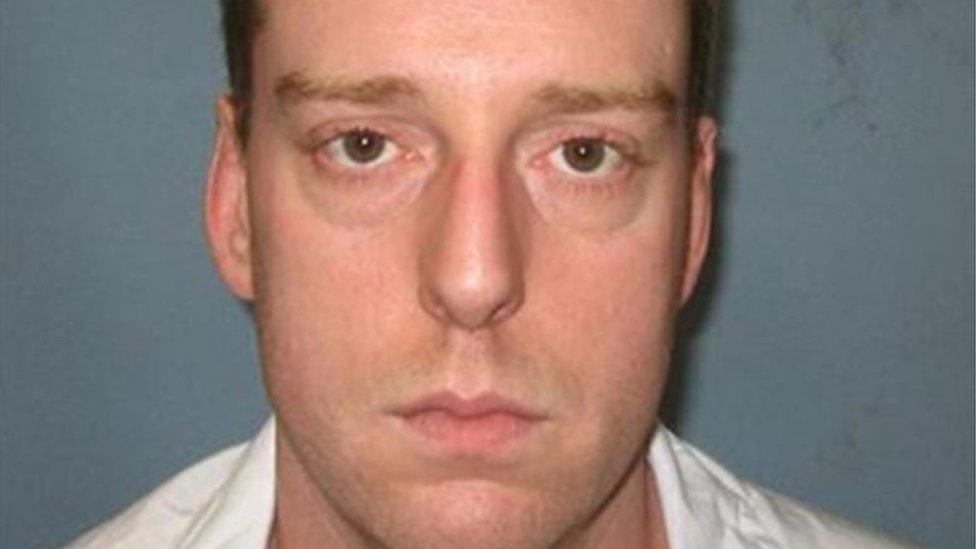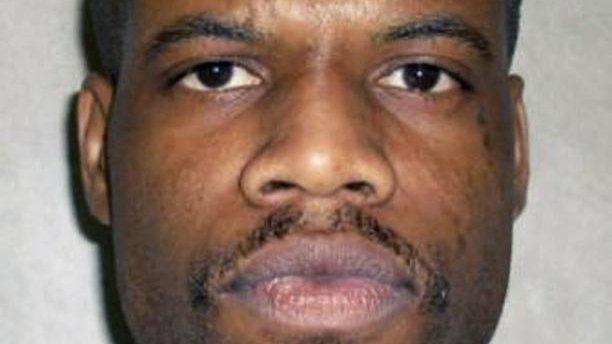Alabama inmate heaves and coughs during lethal injection
- Published

Ronald Bert Smith Jr began coughing thirteen minutes into the execution
An Alabama inmate coughed and heaved 13 minutes into a 34-minute execution, according to witnesses.
Ronald Bert Smith Jr, 45, was eventually pronounced dead more than half an hour after the lethal injection process began at a state prison.
The state uses a three-drug combination that begins with sedative midazolam, which Smith had argued in court could cause inmates to feel pain.
Smith was convicted of capital murder for the fatal shooting of a shop clerk.
A jury initially voted 7-5 to recommend a sentence of life imprisonment for the November 1994 shooting, but a judge overrode that recommendation and sentenced Smith to death.
Is the death penalty dying out in the US?
Huntsville shop worker Casey Wilson was pistol-whipped and shot in the head during the robbery. Surveillance footage showed Smith entering the store and recovering the shell casings where Wilson was shot.
At the beginning of the procedure, Smith began heaving and coughing, clenching his fists and lifting his head, according to local media.
He underwent two consciousness checks before the final two drugs were administered.
During the first, he moved his arm and during the second, he raised it again, witnesses said.
"We do know we followed our protocol. We are absolutely convinced of that," Alabama Corrections Commissioner Jeff Dunn said on Thursday. An autopsy will follow.
Does a death sentence always mean death?
Just before his execution, Smith said "No ma'am", when asked if he had any final words.
The US Supreme Court twice halted Smith's execution as his lawyers argued for a delay.
Journalist Courtney Francisco witnessed the 'botched' execution
Smith's lawyers said a judge should not be able to override a jury's recommendation and impose the death penalty, but that override is legal in Alabama.
Smith's execution is the state's second this year after a brief hiatus caused by a shortage of execution drugs as well as legal challenges to the drugs administered.
Concerns over the three-drug combination were raised after a botched lethal injection in Oklahoma in 2014.
Clayton Lockett appeared to be writhing in pain as he moaned and pulled up from his restraints during the injection.
Execution officials attempted to save his life and took him to an emergency room before he finally died, 43 minutes after the procedure began.
- Published30 April 2014
